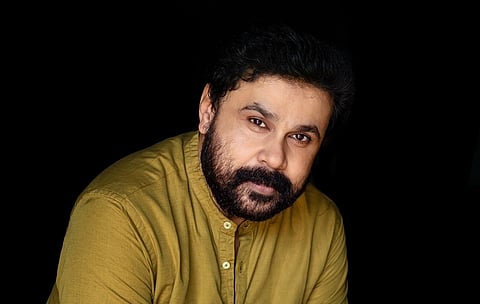

The trial court once again declined the prosecution’s petition to cancel the bail granted to actor Dileep in the Kerala actor assault case. The prosecution had moved the court on April 12 on grounds that Dileep had violated his bail conditions by influencing four witnesses in the actor assault case. On June 28, the court ruled that the petition lacked merit and said that bail could be cancelled only if a convincing case, based on new or unforeseen development, was made out.
The three main allegations that the prosecution had put forward were that Dileep, his lawyers and his family tried to influence witnesses; that he hatched a conspiracy with his relatives and friends to endanger the life of the investigating officer and the other officers of the investigation team constituted for this case; and that Dileep had gone to the extent of influencing the presiding officer investigating the case.
The court said that there was no overwhelming evidence that merited the cancellation of Dileep’s bail. Ernakulam Additional Special Sessions Judge Honey M Varghese said that the prosecution had not been able to provide any solid evidence to back their charges that Dileep tried to influence witnesses or was involved in witnesses turning hostile.
“Though the prosecution canvassed several allegations to show that Dileep influenced or interfered with the investigation, that he tampered with the evidence and was involved in the commission of grave crime while on bail, I am not in a position to accept those grounds as cogent and overwhelming circumstances to lead to the conclusion that the bail granted to the respondent is to be cancelled,” the court said.
The prosecution had submitted conversations between Dileep’s brother Anoop, brother-in-law Suraj and lawyers Raman Pillai and Philip Verghese and alleged that Anoop and Suraj had been tutored to give evidence against the prosecution. The court said that since the two men were close family, turning hostile in court happens instinctively, out of love and affection. “That Mr Suraj and Anoop are the brother-in-law and brother respectively of the accused is to be considered. We cannot expect in the usual course that they will give evidence against the accused. A brother, sister or parent who has seen the commission of a crime may resile in the court from a statement recorded during the course of the investigation. That happens instinctively, out of natural love and affection, not out of persuasion by the accused.”
The court said that there needed to be proof to show the accused’s involvement in the witnesses turning hostile, and without such proof, bail could not be granted on a supposition that the accused person may have won over the witnesses. The court said the prosecution needed to provide an act or some conduct by Dileep to show that there was reasonable interference that caused the witnesses to turn hostile. The court said that the conversation between Dileep and his brother-in-law Suraj was not enough evidence to prove the same.
The prosecution had submitted two audio clips — one was a conversation between Dileep and his lawyer Sujesh Menon while the second was between an advocate and an unknown person. The judge dismissed both these audio clips. In the one allegedly between Dileep and his Sujesh, the advocate is heard saying that they are trying to impress upon a person that the visuals of the sexual assault are dubious. Though the prosecution alleged that the person they were conversing about was Judge Honey Varghese herself, this was dismissed as just an inference as the name was not mentioned. The second clip was dismissed as the prosecution could not prove who was speaking about influencing the judge using a case against her husband.
The court also said that there was no evidence made available to the court to establish or prove whose voices they were.
The prosecution had submitted a statement by the uncle of witness Vipin Lal, that Pradeep, the personal assistant of actor-politician Ganesh Kumar, had called him. The prosecution added that Pradeep was also in touch with Dileep’s driver Appunni. The court said that Appunni was cross-examined about the same, and he had deposed before the court that he contacted Pradeep to facilitate their visit to a temple. The court said that the prosecution had not provided any concrete proof to establish that the two met to aid Dileep’s case, and the mere fact that Pradeep contacted Dileep’s driver could not be considered as a circumstance to conclude that Pradeep visited the uncle of Vipin Lal for and on behalf of Dileep.
The prosecution had submitted that Dileep and his associates deleted several contents and evidence available on the mobile phones with the help of hacker Sai Sankar, who is now an approver in the case. However, the court said that since an investigation into the conspiracy case was underway, it would not be proper to comment on the same. The court added that the prosecution had not provided any details on what contents were retrieved from the phones that were seized. “I cannot hold that the respondent caused the disappearance of evidence simply for the reason that the mobile phone was subjected to examination in a private lab,” the court said.
The court said that it cannot take cognisance of the prosecution’s submission that Dileep hatched a conspiracy to endanger the lives of police officers investigating the sexual assault case. The court said that director Balachandra Kumar’s statements and the evidence submitted by him were being separately probed and passing any final conclusion about it would be premature. “It is a well-settled principle of law that the matters under consideration for quashing FIR cannot be taken as a ground to conclude that the accused committed the offences alleged against him in the FIR,” the court said.